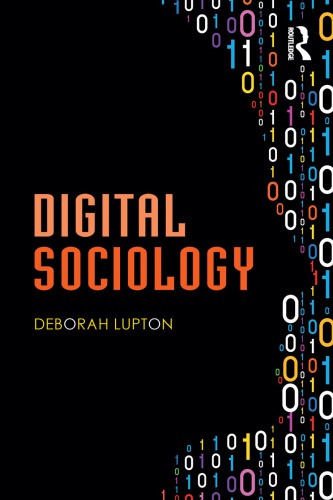

Most ebook files are in PDF format, so you can easily read them using various software such as Foxit Reader or directly on the Google Chrome browser.
Some ebook files are released by publishers in other formats such as .awz, .mobi, .epub, .fb2, etc. You may need to install specific software to read these formats on mobile/PC, such as Calibre.
Please read the tutorial at this link: https://ebookbell.com/faq
We offer FREE conversion to the popular formats you request; however, this may take some time. Therefore, right after payment, please email us, and we will try to provide the service as quickly as possible.
For some exceptional file formats or broken links (if any), please refrain from opening any disputes. Instead, email us first, and we will try to assist within a maximum of 6 hours.
EbookBell Team

4.0
76 reviewsThe sub-discipline of digital sociology provides a means by which the impact, development and use of these technologies and their incorporation into social worlds, social institutions and concepts of selfhood and embodiment may be investigated, analysed and understood. This book introduces a range of interesting social, cultural and political dimensions of digital society and discusses some of the important debates occurring in research and scholarship on these aspects. It covers the new knowledge economy and big data, reconceptualising research in the digital era, the digitisation of higher education, the diversity of digital use, digital politics and citizen digital engagement, the politics of surveillance, privacy issues, the contribution of digital devices to embodiment and concepts of selfhood and many other topics.
Digital Sociology is essential reading not only for students and academics in sociology, anthropology, media and communication, digital cultures, digital humanities, internet studies, science and technology studies, cultural geography and social computing, but for other readers interested in the social impact of digital technologies.